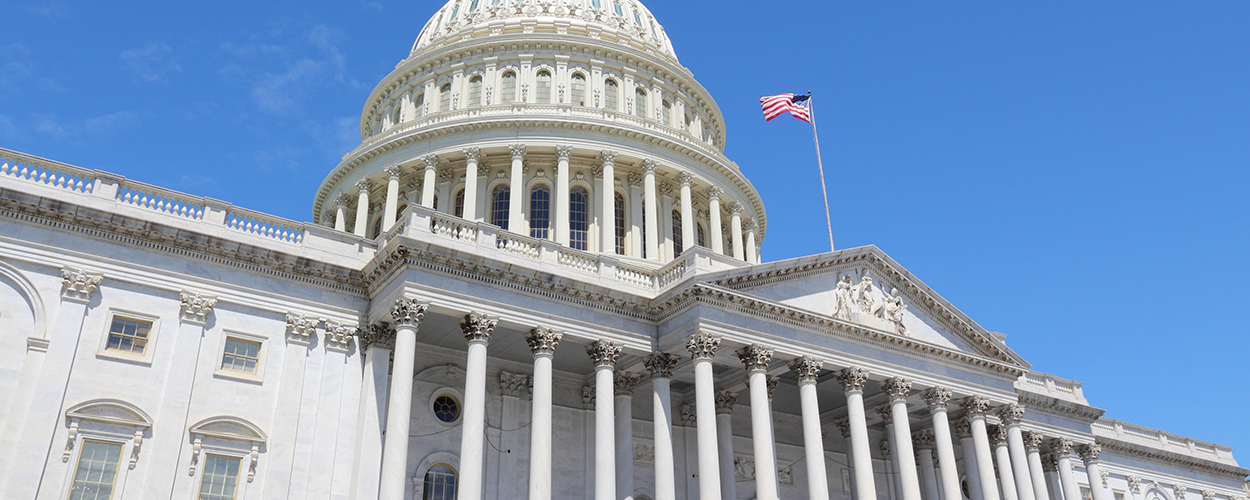This website uses cookies so that we can provide you with the best user experience possible. Cookie information is stored in your browser and performs functions such as recognising you when you return to our website and helping our team to understand which sections of the website you find most interesting and useful.
Business News Digital Labels & Publishers Legal
America’s Re:Create Coalition hits out at proposed safe harbour reform
By Chris Cooke | Published on Wednesday 10 March 2021

US lobbying group the Re:Create Coalition has responded to recent proposals by Congressman Thom Tillis to reform the country’s copyright safe harbour. In short, it does not approve.
The coalition of American tech giants, start-ups, libraries, educational organisations and digital rights campaigners recently urged members of US Congress to basically leave the pesky copyright safe harbour alone. So it is not surprising that it doesn’t agree with plans to do the opposite.
Proposals put forward by Tillis, says the Re:Create Coalition, “create a system for digital copyright that is clearly unconstitutional and just unworkable for internet creators, users and service providers”.
The copyright safe harbour, of course, is the principle that restricts the liabilities of internet companies whose customers use their networks or servers to infringe copyright. The internet firm cannot be held liable for that infringement providing it has systems in place via which copyright-owners can have infringing content removed. In the US the safe harbour is contained in the 1998 Digital Millennium Copyright Act.
Last year Senator Tillis, as a member of the US Senate’s IP sub-committee, led a series of hearings on the safe harbour and whether it was time to review the principle. While those hearings were underway, the US Copyright Office published a report that concluded the safe harbour probably did need some “fine-tuning”, but that radical reform wasn’t necessary. However, following the hearings, Tillis circulated some proposed legal reforms that would do somewhat more than mere fine-turning.
In particular Tillis’s proposed Digital Copyright Act embraces the idea of takedown-and-stay-down. Copyright owners have long argued that a particular problem caused by safe harbour is that as soon as a digital platform responds to a takedown notice against one piece of infringing content, the same piece of content is re-uploaded by another – or the same – user. That requires the rights-holder to issue a new takedown beginning a long-running game akin to Whac-A-Mole.
The solution to that problem would be for safe harbour dwelling platforms to have a new obligation under law: takedown-and-stay-down. Not only would they have to remove any one piece of infringing content when a rights-holder sends a takedown notice, but they would also have to ensure that the same piece of content is not re-uploaded.
Applying that new obligation to all safe harbour dwelling platforms would be undesirable and unworkable, reckons the Re:Create Coalition, in a letter to Tillis sent last week and published on the organisation’s website yesterday. It would result in all internet platforms having to constantly filter all content, and would create a whole load of free speech issues when those filters inevitably blocked private communications and the distribution of copyright material that is, under US law, ‘fair use’.
“The notice and staydown provisions in the Digital Copyright Act create a system where sending a single notice suffices as a notice on all uses of that work, past, present and future”, the letter states.
“While that is a convenient option for notice senders, it leaves internet services with two options: do their own copyright analysis of the use and hope they get it right, or just take down all future uses, even if they are lawful. This shifts how lawful uses are exercised – it would require sending a counter-notice to have lawful uses on the internet, especially fair uses”.
The current system for issuing counter-notices – whereby a user hit by a takedown notice from a copyright owner can object, usually to claim they are covered by the fair use principle – is already “flawed”, the Coalition then argues. And takedown-and-stay-down would greatly increase the need for such counter-notices to be issued.
Elsewhere the Coalition notes: “By creating a one size fits all approach, the [DCA] does not capture all of the ways the DMCA applies online. Additionally, it reads to only combat illicit uses of intellectual property online and does not consider e-commerce and other uses of platforms. If considering changes to the DMCA, it’s prudent to consider every usage of the internet. The internet is more than simply an entertainment machine, it’s an economic engine – an important point that the original drafters of the legislation understood”.
Of course, any reform to the copyright safe harbour is going to be strongly lobbied against by big tech, as we saw with the safe harbour reforms in Europe, which only specifically affect user-upload platforms. And some of the concerns raised by the Re:Create Coalition are legitimate.
However, for the copyright industries takedown-and-stay-down is becoming a top lobbying priority, and while Tillis’s proposals may well still need plenty of work, the basic principles he proposes will be widely supported by the creative and entertainment industries.
You can read the full letter from the Re:Create Coalition to Tillis here.
For an overview of the copyright safe harbour, the controversies around it, and proposed reforms – including Tillis’s Digital Copyright Act – download this free white paper from Friend MTS and CMU Insights as part of the new ‘Building Trust’ series.





